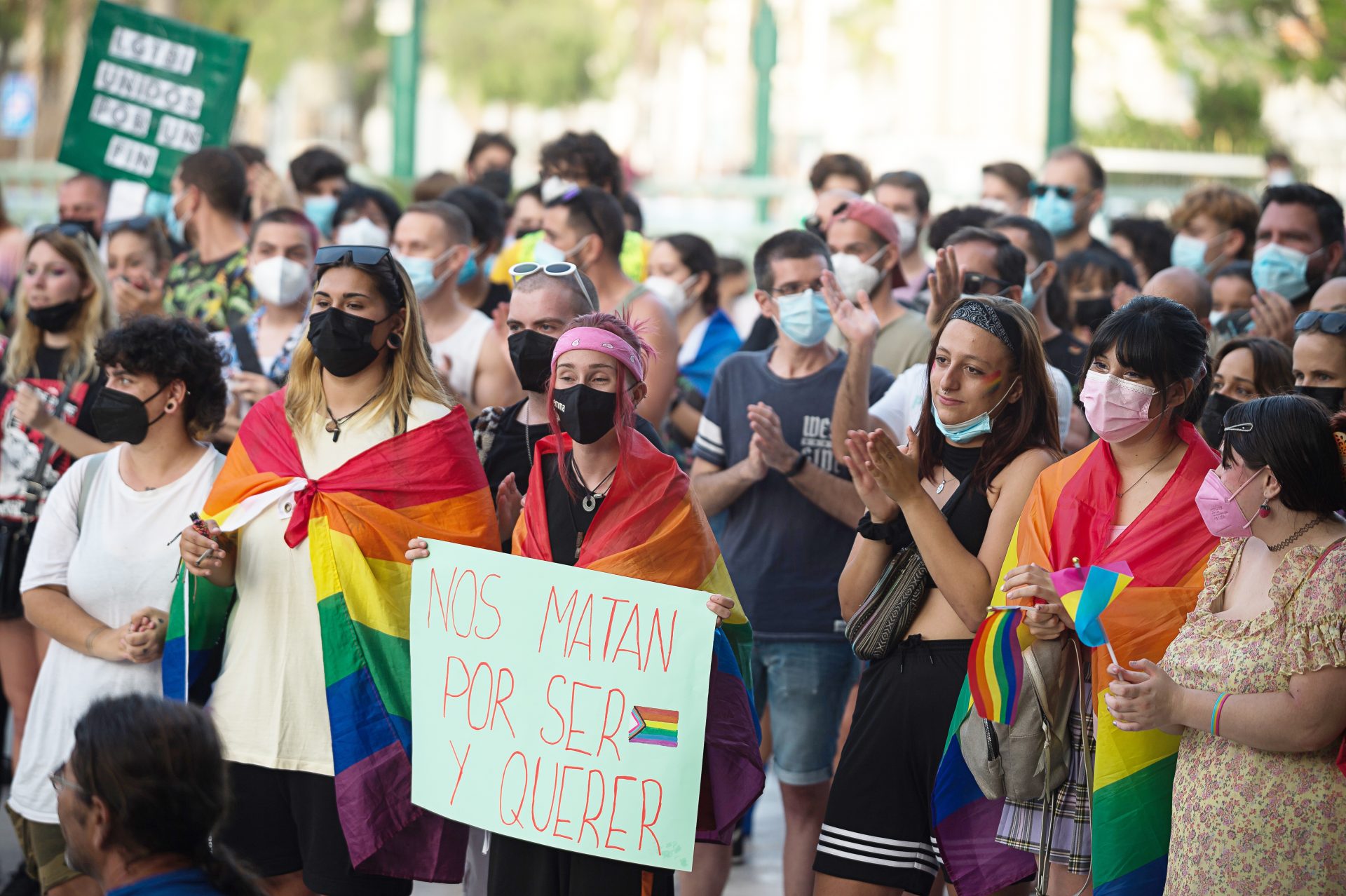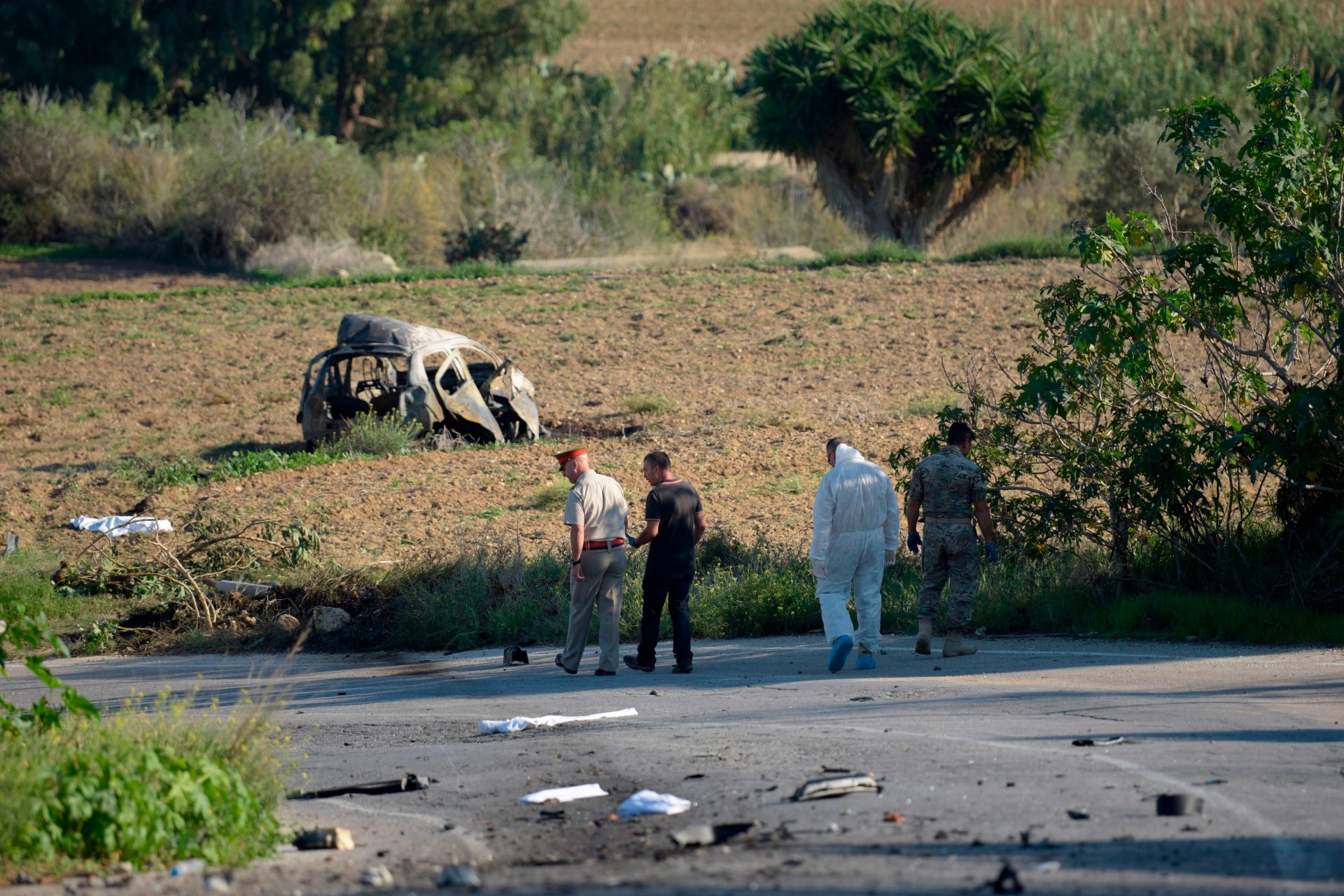Homophobic and anti-transgender attacks are increasing in Spain. In July a young gay man Samuel Luiz was kicked to death outside a nightclub in A Coruña. This horrific act triggered street protests in Madrid, Barcelona and beyond.
Luiz’s murder, like George Floyd’s in Minneapolis, became a focus for demonstrations about a more general problem.
Spanish equality minister Irene Montero recently tweeted that in 2021 there has been a 43% increase in such crimes against the LGBTI community.
Spain is open and liberal in many of its laws. It was the third country in the world to legalise same-sex marriage. This is a very different place from what it was in 1936 when the poet Federico García Lorca was murdered at the behest of military authorities.
Some blame recent anti-LGBTI crimes on the rise of Vox, the far-right xenophobic, anti-feminist, nationalist party that strongly opposes gay marriage (but supports same-sex civil unions).
The suggestion is that Vox has provided a climate in which attacks are more likely.
A problem here is untangling causes. Just because two things are correlated doesn’t mean one causes the other.
The two might be effects of a further cause – perhaps a current of homophobia in Spain caused by something else led both to the Vox party stance and to the rise in this targeted hate crime.
Nor does Vox’s seem to be the dog-whistle politics that we have witnessed in the US, where politicians signal through apparently innocuous coded language that they want followers to attack, something that is a clear incitement to violence.
Rather, Vox is at heart intolerant of ways of living that are established and accepted in Spain and in most other parts of Europe.
That’s their political stance: intolerance.
With Viktor Orbán in Hungary we’ve seen how quickly tolerance is undermined when an intolerant leader gains power.
But how much intolerance should a tolerant society tolerate?
In The Open Society and Its Enemies, the philosopher Karl Popper described ‘The Paradox of Tolerance’.
A Viennese emigré, Popper wrote the book in New Zealand where he had taken up a lectureship in 1937 to escape National Socialism.
He was in general a defender of tolerance, and of what he called
critical rationalism in an open society, a society that gradually reforms itself by debate and refinement rather than revolution and is built on individual freedoms and rights.
Yet he realised that any tolerant society that tolerates the intolerant risks self-destruction – that’s the paradox: ‘If we extend unlimited tolerance even to those who are intolerant,’ he wrote in a now-famous footnote, ‘if we are not prepared to defend a tolerant society against the onslaught of the intolerant, then the tolerant will be destroyed and tolerance with them’.
Wise words, but what is to be done? Popper didn’t want to silence the intolerant. Not straightaway.
As long as they were kept in check by rational argument and public opinion he thought it unwise to ban their speech.
But if they no longer engaged in debate, and encouraged followers to use fists and guns, an open society should reserve the right to legislate against them.
Incitement to radical intolerance should itself be a crime, like incitement to violence.
Historically, tolerant societies have not been very successful at stemming intolerance or choosing when or how to act.
It is almost as if they have a design flaw that allows proto-fascists to destroy them.
Once the moment for action has passed and the tolerant are under the boot, it is too late.
But Popper was surely right in his diagnosis – unlimited tolerance leaves the door open to destructive intolerance.
In Spain, responses to these homophobic attacks have been encouraging.
There have been public statements of the fundamental values of Spanish society, such as prime minister Pedro Sánchez’s tweet: “We will continue to work for an open and diverse country, where no one is afraid to be who they are, where we all live free and safe”.
But the violent intolerant are out there, and if politicians connect with them, words may not be enough.



